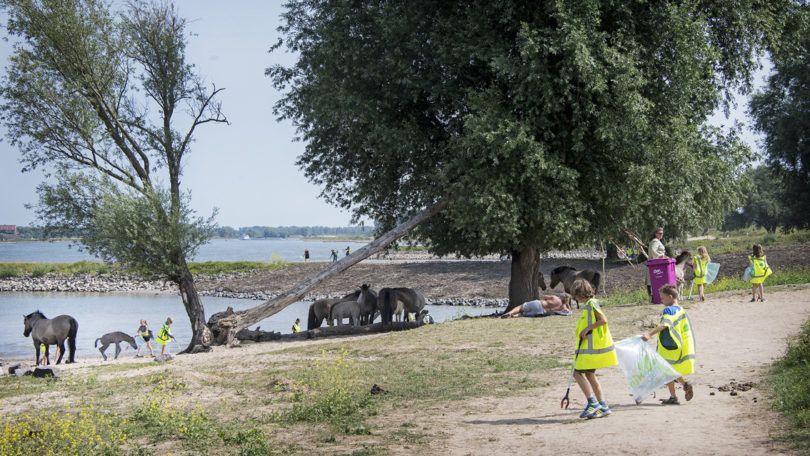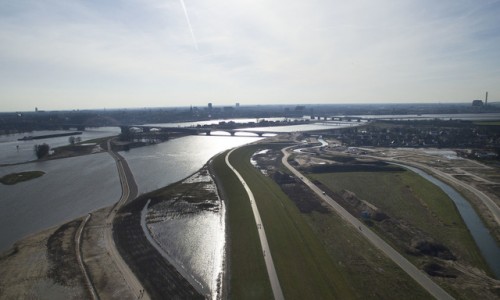Forest ranger tired of littered beaches
-
 Cleaning of the Waal beaches last week. Photo: Bert Beelen
Cleaning of the Waal beaches last week. Photo: Bert Beelen
Staatsbosbeheer (the Dutch forestry commission) is calling on student associations to help keep Nijmegen's Waal beaches clean. 'The campfire sites were littered with plastic bags and cans this week.'
DAR cleaners and homeless people from Stichting Dagloon are working hard every day to clean up the mess. Thijmen van Heerder, a forest ranger with Staatsbosbeheer, wants student associations to help prevent further littering. ‘Lots of young people and students come to the Waal beaches in the evenings. I think they’d be more inclined to clean up after themselves if they felt pressured by their fellow students. Hence the idea of having groups of students walk around the area in the evenings. I hope the associations see the use of this too.’
Continuous irritation
Much to the forest ranger’s annoyance, the Waal beach behind the Ooijpoort was once again covered in trash this week. ‘The campfire sites were littered with plastic bags and cans. You see people grab plastic bags at the bridge, but the point is to take those bags with you or throw them away. But as usual, this didn’t happen’, says Van Heerde.
‘If it were up to me, people would be fined 500 euros every time they littered’
Despite the mess, Van Heerde agrees that things are taking a positive turn. ‘More rubbish is being taken to the bins across the bridge. The problem now is that people are leaving their rubbish next to the bins because the bins are too full. While their rubbish is definitely their responsibility, I do think there could be better coordination with the DAR. The cleaners could empty the bins in the early evening, for example. The good news is that we’re getting eight new rubbish bins soon.’
To reduce the amount of litter, extra regulators were deployed this month and an active campaign was launched. According to Thomas van der Hulst, public policy advisor at the municipality, one proposal was to close the beaches at night. ‘It’s a serious problem this year, but we’re no longer considering this option. It would be too difficult to close off such a big area every night’, he says. So what’s the solution? ‘The behaviour has to change. People need to be more aware of the consequences.’
To raise awareness among Nijmegen residents, the Green Capital Challenges platform launched a campaign this week with the motto Nijmegen raapt het in één keer op! (‘Nijmegen cleans up in one go!’). As part of the campaign, residents were encouraged to pick up at least one piece of litter. The campaign was the initiative of Nijmegen natives Koos van Daelen and Jan Fokke Oosterhof and included a clean-up day at the Waal beach last Wednesday with local pupils.
‘I always pick up at least one piece of litter when I hold my running course’, says Oosterhof, one of the initiators of this week’s clean-up. ‘I noticed most people tend to copy this behaviour. I hope that a campaign day like this inspires more awareness.’ Nature enthusiasts are deeply irritated by the mess left behind by beachgoers. ‘This week, as per usual, there were broken beer bottles and pieces of glass lying around. People have to realise that children play here during the day.’ What’s the solution for litter? According to Oosterhof, it’s higher fines. ‘If it were up to me, people would be fined 500 euros every time they littered.’
This article appeared in De Gelderlander


